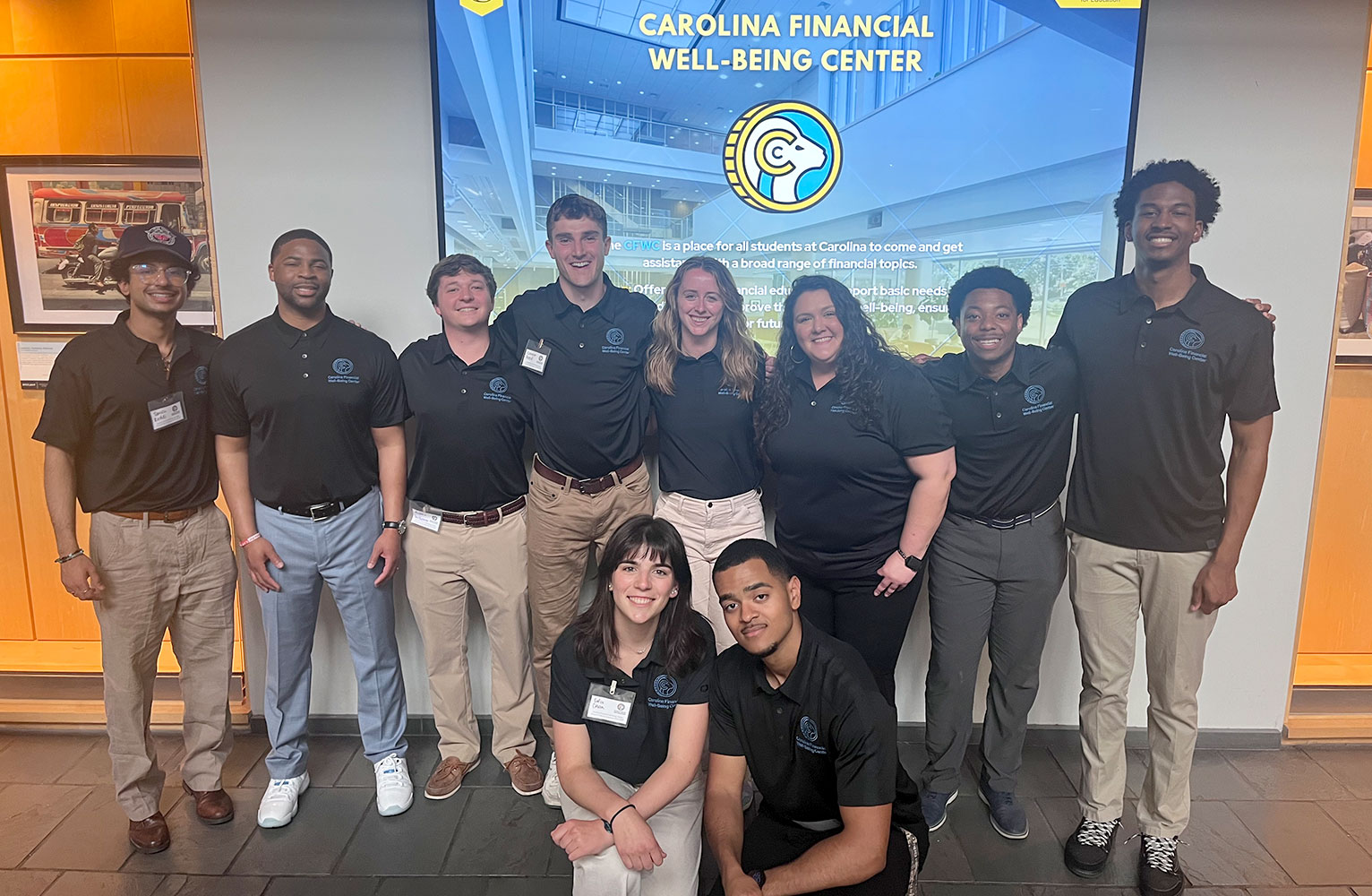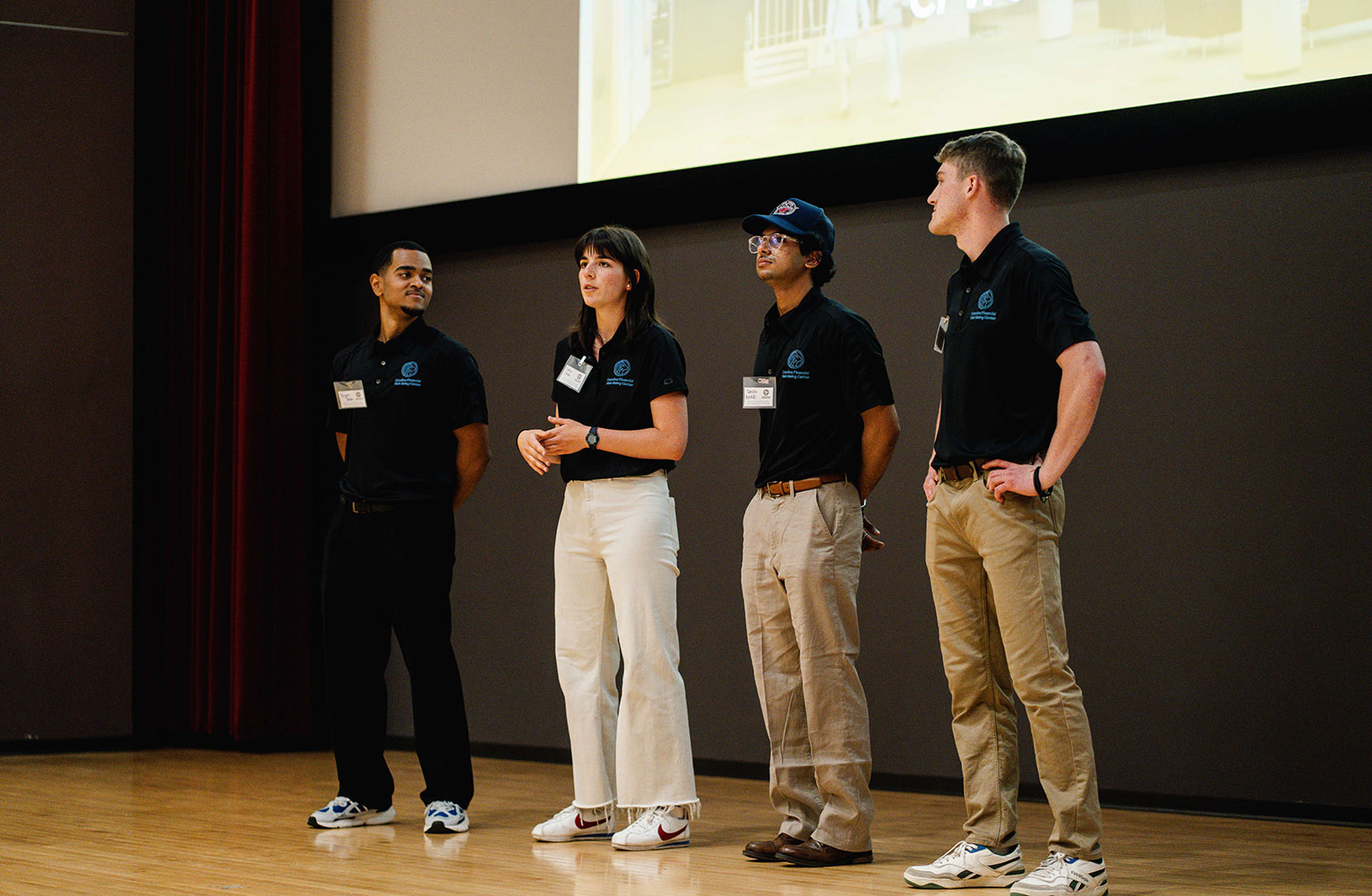
Sofia Chan ’27 got her first credit card right before coming to Carolina, after her mom suggested that she get one to start building credit. She began using her new credit card, careful to follow the advice she’d been given: Don’t spend beyond your credit limit, and make sure to pay your bill each month. But she was only paying the minimum amount due each month, and rather than build credit, her credit score quickly began to drop.
Chan began to look for financial education during her first year at Carolina, but she had a hard time finding the resources she needed on campus. She came across a job posting for a peer financial coach position at the new Carolina Financial Well-Being Center, and she decided it was a good opportunity to learn everything she needed to know about personal finance and help other Carolina students by sharing her knowledge.
A new resource on campus
The Financial Well-Being Center is new to Carolina’s campus. Director Gilbert Rogers arrived at Carolina a year ago and began the work of establishing the new center — securing a location on campus, building a team, creating a web and social media presence, and more. In October the group began meeting with Carolina students.
Rogers isn’t new to this work. He first worked in banking and financial consulting before he began to research financial literacy and ways to make financial education feel more relevant to individuals. He worked for the U.S. Army for two and a half years, writing the curriculum that was used to train soldiers in financial literacy before they returned to civilian life.
“I started thinking about how to provide students with financial education during college,” said Rogers. “Usually people don’t get much exposure to financial education until they are out of school and living independently, and by then many have already accumulated debt. By providing financial education earlier, we can set young people up for much greater financial success.”
Rogers developed a financial literacy program at the University of Tulsa, and then established another at the University of Oregon, where he first implemented a peer-to-peer training model.

Carolina Financial Well-Being Center peer coaches present at a conference.
The impact of peer coaching
The Center uses the peer-to-peer model for a number of reasons, including:
- research shows students are often more receptive to learning from and connecting with a peer;
- student leaders are more effective at attracting students to workshops; and
- the peer-to-peer model gives peer financial coaches valuable opportunities to grow in their presentation and people skills, build their resumes and obtain hands-on personal finance consulting experience.
Chan became a peer financial coach in August 2024. She received 80 hours of in-person training from Rogers and his team, and now she leads financial literacy workshops and meets with students for one-on-one coaching. The training includes 60 hours learning the fundamentals of financial literacy: earning, spending, borrowing, protecting and saving/investing. Peer financial coaches also receive 20 hours of role-play based training.
“I felt financially insecure before, but the training I’ve received as a peer financial coach has equipped me to take back control of my finances,” said Chan. “I even opened a Roth IRA this year, which is something I’d always assumed I wouldn’t be able to do until way later in life when I have a higher income. But this job has given me the confidence to get started on my long-term financial goals.”
Helping students succeed financially
The center often gets coaching requests from students who will soon graduate and want to understand cost of living considerations in different job markets. Other frequent requests are from students who are getting their first credit card or trying to create a budget after receiving a yearly stipend. Graduate and professional students often have more complex questions like, “Can I afford to get married?” or “How will I manage this student loan debt?” and often need help with financial planning, not just financial education.
Adelaide Cooke ’18, ’26 (MD and MBA) had multiple retirement accounts charging her fees, and she wanted to consolidate them into a single account. Cooke booked one-on-one coaching with Chan, and after two sessions she had all the information she needed to consolidate accounts.
“I’m a dual medical and MBA student without a lot of free time, so it was very helpful to have this resource on campus,” said Cooke. “I think the Financial Well-Being Center helps make financial issues less daunting, and helps equip students to be more financially literate and successful.”
The center is still very young, and Rogers and his team are looking to increase awareness of the resource across all areas of campus. Even so, student demand for workshops and one-on-one coaching is growing. Rogers hopes to hire more peer financial coaches for the 2025-26 academic year to ensure that the center’s services are readily available to all Carolina students.
Written by Audrey Smith ’10
Photos submitted by the Carolina Financial Well-Being Center



